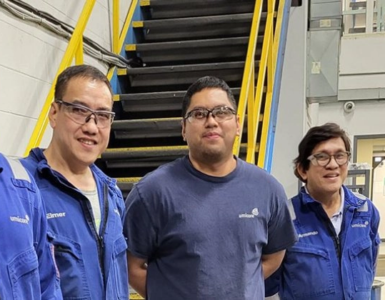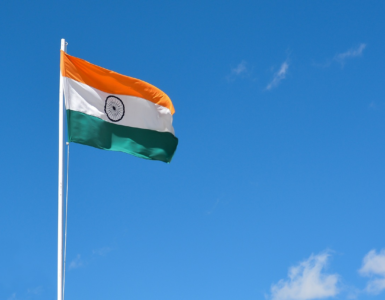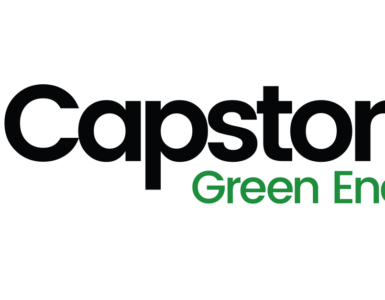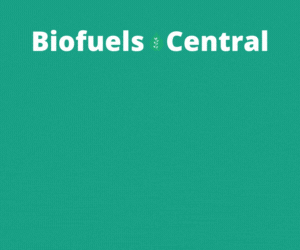Shell – King Willem Alexander opens first Dutch bio-LNG plant.
With the press of a button Dutch king Willem-Alexander officially put into service the first bio-LNG plant of the Netherlands. With this scoop, initiators Nordsol, Renewi and Shell have taken the next step in making road freight transport more sustainable. It is expected that the new plant will produce an estimated 3.4 kilotons of bio-LNG per year, preventing the emission of more than 14.31 kilotons of fossil CO2. This is sufficient for 13 million on-road kilometers.
Bio-LNG is made from organic waste, not from fossil resources. That is why bio-LNG makes it possible to reduce CO2 emissions in the short term. The fuel also has a lower nitrogen emissions compared to diesel, and cleaner combustion ensures that there is hardly any emission of particulates. Bio-LNG can also be used in existing LNG engines. For storage and distribution, the growing LNG infrastructure in the Netherlands and in the whole of Europe can be used.
Circular collaboration
Nordsol’s bio-LNG plant is built on the site of Renewi in Amsterdam Westpoort. This BioLNG plant is in part subsidized by the EU (20 percent), as part of its strategy to decarbonise the road transport. The three initiators each have their own part in the production of biofuel. Renewi collects organic waste throughout the Netherlands, such as expired products from supermarkets. The recycler then processes the waste and converts it into biogas in its own fermenters. Nordsol’s new bio-LNG plant reprocesses the biogas into bio-LNG. Shell makes this bio-LNG available for its customers at LNG service stations in the Netherlands. In addition, during the production of bio-LNG, CO2 is removed from the biogas and liquefied for reuse in greenhouses.
🔥 What about we co-host a webinar? Let's educate, captivate, and convert the biofuels economy!
Biofuels Central is the global go-to online magazine for the biofuel market, we can help you host impactful webinars that become a global reference on your topic and are an evergreen source of leads. Click here to request more details
Jerom van Roosmalen, CEO of Nordsol:
The use of smart, energy-efficient technology is the basis for a local, circular economy and a healthy business case
The Netherlands has approximately 260 ‘traditional’ biogas plants. Most of these can be made suitable for the production of bio-LNG. With the technology used by the biogas plant of Renewi in Amsterdam, bio-LNG can also be produced in many other places in the country.
The partners expect that thanks to the construction of new plants, the available quantity of bio-LNG will, over the next four years, increase at least tenfold.
Otto de Bont, CEO of Renewi:
Collaboration of partners within the chain leads to concrete results
“This matches our vision on ‘Waste No More’ and also ties in with our commitment to take the lead in producing secondary raw materials from waste streams. By also using bio-LNG itself when collecting this waste, Renewi closes the circle.”
Marjan van Loon, President Director of Shell Netherlands:
Shell wants to help clients to be more sustainable and makes significant investments in the energy transition.
“To make this possible, we collaborate with partners like Renewi and Nordsol. Bio-LNG is the next step in making the cargo sector sustainable. Thanks to this collaboration we can offer our customers in the logistics industry a cleaner alternative, starting with road freight transport and, eventually, also maritime transport.”
What is biogas?
Biogas is composed of approximately 60% methane and 40% carbon dioxide. Nordsol’s technology makes it possible to separate in small efficient steps pure methane from biogas. What is also unique is that the CO2residual product is made liquid and available for the industry. This reusable bio-CO2 provides additional CO2 reduction in the bio-LNG process.
What is bio-LNG?
The abbreviation LNG stands for Liquefied Natural Gas. That means gas that has been liquefied. This is usually natural gas, but in the case of bio-LNG it is gas made from organic material, for example, plant-based residue. To make bio-LNG, the organic material is first converted into biogas. This is done in a fermenter. After all the polluted parts have been filtered out, the gas is cooled. This is how it achieves its liquid form. It makes bio-LNG dense and easy to transport.
READ the latest news shaping the biofuels market at Biofuels Central
KONING WILLEM-ALEXANDER OPENT EERSTE NEDERLANDSE BIO-LNG-INSTALLATIE, 14 okt. 2021








